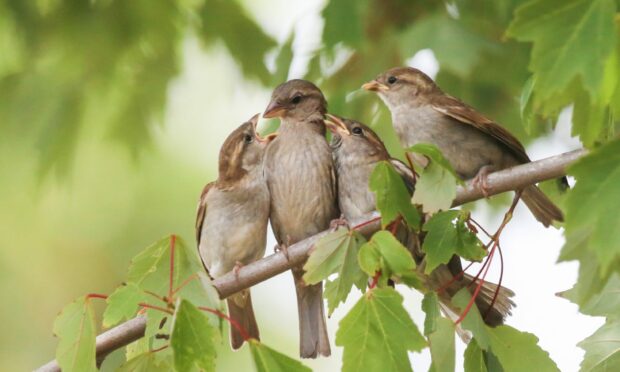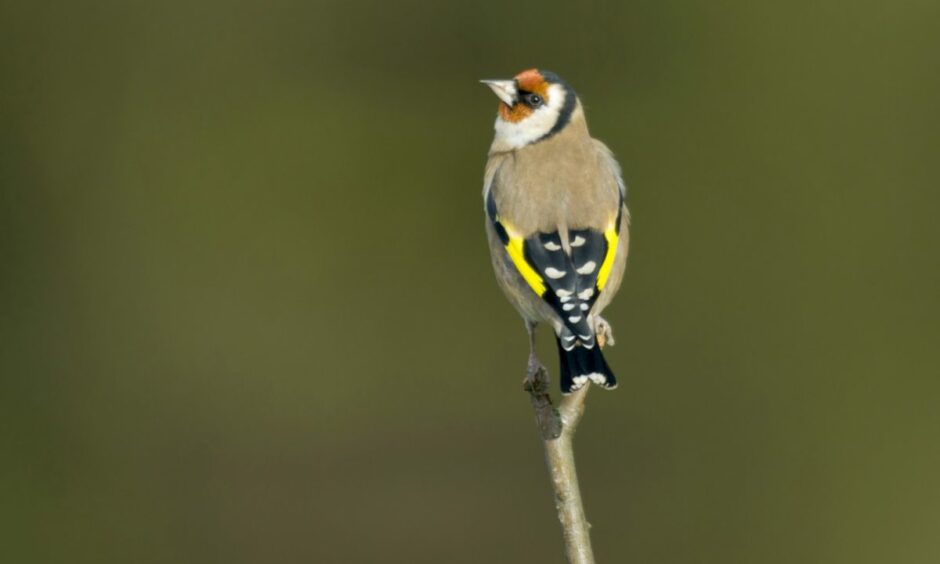Scotland’s eagle-eyed birdwatchers have seen a glimmer of hope for the greenfinch population as part of a nationwide wildlife survey.
More than 44,000 Scots recorded over 830,000 bird sightings as part of the 43rd RSPB’s Big Garden Birdwatch.
House sparrow’s retained the top spot as the most commonly seen garden bird with more than 145,000 recorded sightings throughout the weekend-long event.
Starlings and blue tits remained in the number two and three positions respectively.
Goldfinches were the biggest climbers of the top 10 with 43% more counted compared with last year’s results.
After dropping four places in 2021, goldfinches made a partial recovery, climbing up to eighth place after being recorded in almost 30% of gardens.
RSPB Scotland director Anne McCall said she is thrilled to see the goldfinch population thrive.
She said: “Nature lovers have much to be concerned about in today’s world – but the rise of the goldfinch around our homes, towns and cities is just an uplifting joy.
“The fact that they are doing well is for me a message for hope – that we can live alongside wildlife in a nature positive world.”
The RSPB director added: “It’s been brilliant to see so many people taking part again this year, taking time out to watch and reconnect with birds and then generously submit their sightings to help RSPB scientists gain some insights into how our garden birds are faring.”
Revival of the greenfinch population
The survey has brought a glimmer of hope to scientists as findings indicate a small increase in the greenfinch population.
In recent years the greenfinch has suffered a population crash across the UK (62% since 1993) caused by a severe outbreak of the disease trichomonosis.
The bird was added to the UK’s “red list” last year.
This year, greenfinch’s were recorded in 16% of Scotland’s gardens, a rise of 18.% on last year.
The RSPB’s Big Garden Birdwatch is an opportunity for people of all ages to count the number of birds that visit their garden or a local park or green space.
The campaign helps the RSPB get a snapshot of how these creatures are faring whilst providing a snapshot into their behaviours.
Paul Walton, head of habitats and species for RSPB Scotland, added: “It’s now spring and we can all keep that connection to nature going by experiencing the dawn chorus.
“This is the sound of birds everywhere getting ready for the breeding season, establishing territories, seeking a mate, warning off love rivals. It’s an annual miracle and you can experience it almost anywhere, even in cities.”


